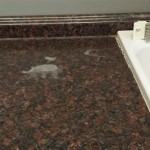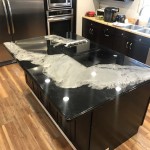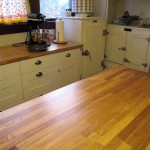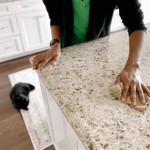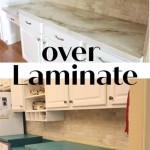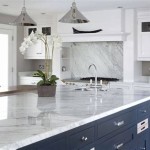Marble Countertops In Kitchen: Pros And Cons
Marble, a luxurious and timeless natural stone, has been a popular choice for kitchen countertops for centuries. Its elegant appearance, durability, and heat resistance make it a desirable option for homeowners looking for a high-end and sophisticated look. However, like any material, marble also has its drawbacks, such as its susceptibility to stains and scratches. To make an informed decision about whether marble countertops are right for your kitchen, it's important to weigh the pros and cons carefully.
Pros of Marble Countertops
1. Beauty and Elegance: Marble's natural veining and unique patterns create a stunning and sophisticated aesthetic in any kitchen. It adds a touch of luxury and timeless style, making it a favorite among discerning homeowners. The wide range of colors and finishes available allows for customization to complement any kitchen design theme.
2. Durability: Contrary to popular belief, marble is a relatively durable material. When properly sealed and maintained, it can withstand everyday wear and tear, including heat and impact. Its resistance to heat makes it ideal for kitchens where cooking and baking are common occurrences.
3. Heat Resistance: Marble has excellent heat resistance, making it suitable for use with hot pots and pans. You can safely place hot cookware directly on the marble surface without the risk of damage or discoloration. This heat resistance is a significant advantage over other countertop materials like quartz or granite.
4. Easy to Clean: Marble countertops are relatively easy to clean and maintain. Regular wiping with a damp cloth and mild soap is typically sufficient to keep them looking pristine. Harsh chemicals or abrasive cleaners should be avoided, as they can damage the surface.
Cons of Marble Countertops
1. Susceptibility to Stains: Marble is a porous material, making it susceptible to staining. Spills and acidic liquids, such as lemon juice or vinegar, can penetrate the surface and leave behind permanent marks. To prevent staining, it's crucial to seal the marble countertop properly and clean up spills immediately.
2. Prone to Scratches: Marble is a relatively soft stone, which means it can be prone to scratches. Rough treatment, sharp objects, or heavy cookware can leave marks on the surface. To minimize the risk of scratches, use cutting boards for food preparation and avoid dragging heavy items across the countertop.
3. High Maintenance: Marble countertops require regular maintenance and care to preserve their appearance. Regular sealing is essential to protect against stains and scratches. Additionally, marble requires cleaning with specific cleaners designed for natural stone surfaces.
4. Cost: Marble countertops are generally more expensive than other countertop materials, such as granite or quartz. The cost will vary depending on the type of marble, its availability, and the size of the countertop. Installation costs can also be higher due to the expertise required for working with natural stone.

What Are The Pros And Cons Of Marble Countertops

How To Choose Best Material For Your Kitchen Countertop

The Pros Cons Of Marble Countertops What I Use To Clean Mine Zdesign At Home

The Pros Cons Of Marble Countertops What I Use To Clean Mine Zdesign At Home

The Pros Cons Of Marble Countertops What I Use To Clean Mine Zdesign At Home

White Marble Countertops Pros Cons Nalboor

The Pros And Cons Of Marble Countertops Does It Get A Bad Rap

Pros Cons Of Marble Countertops Brazilian Exotic Granite

Marble Countertops 6 Important Things You Must Know

Marble Countertops Pros And Cons Explained


